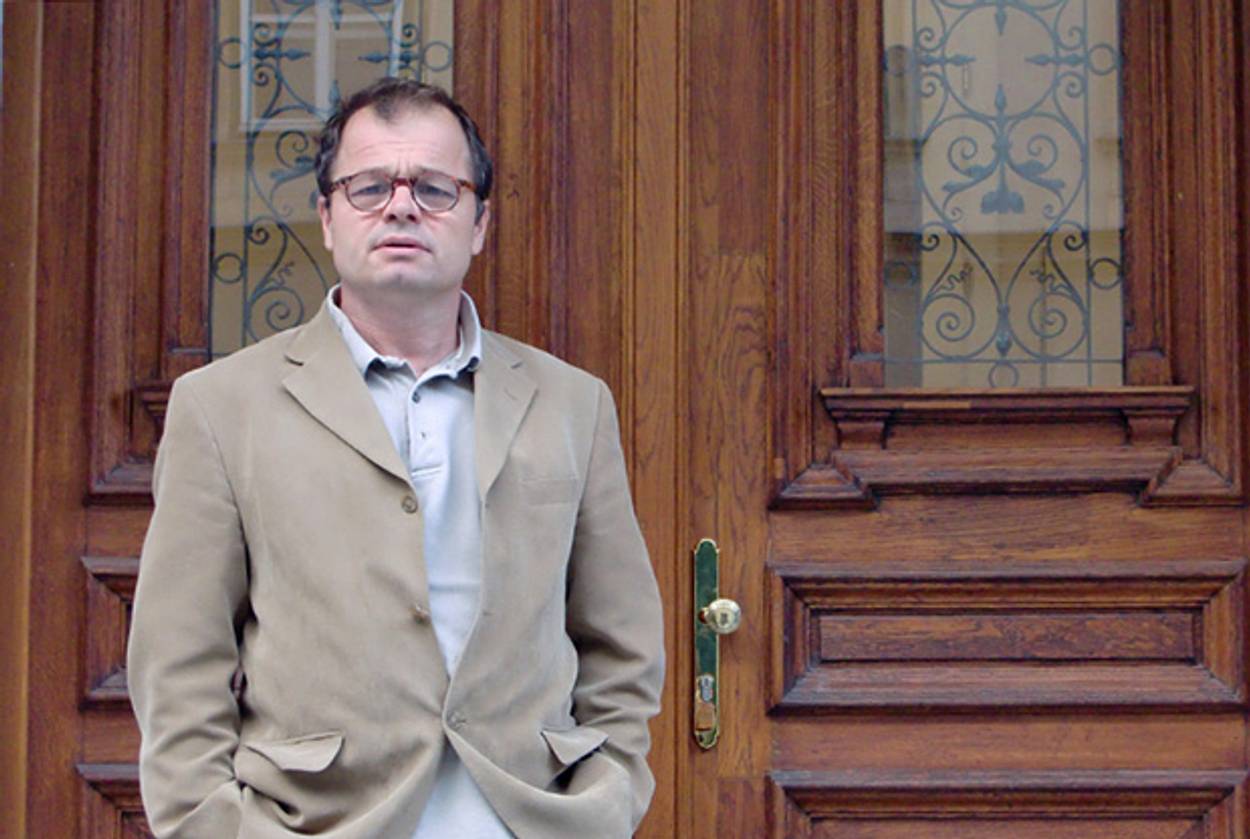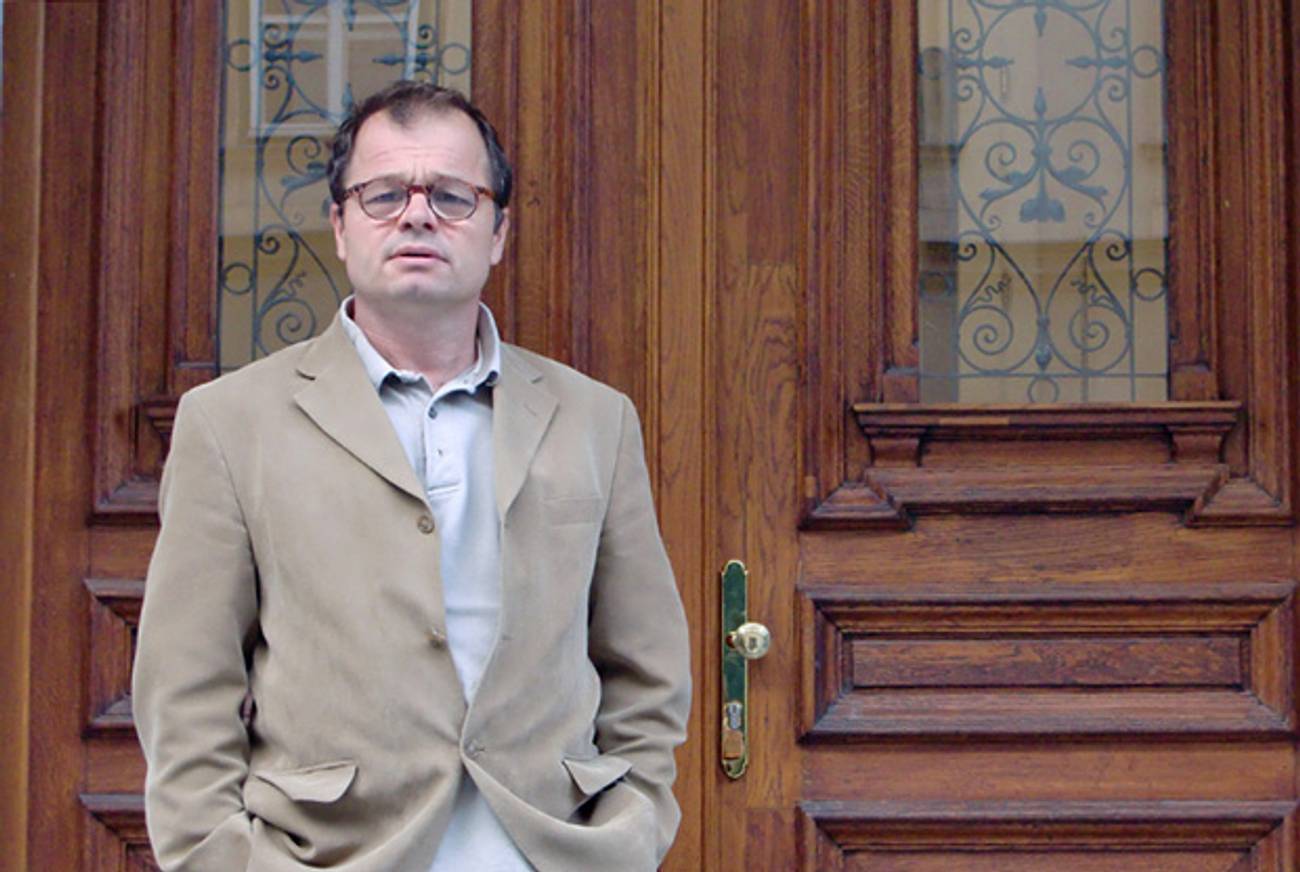Austria’s Case Against Holocaust Survivor’s Son Falls Apart
Architectural historian faced one-year prison sentence over restitution claim




Austria’s efforts to jail the son of a Jewish Holocaust survivor for trying to reclaim family property seized by the Nazis appear to have fallen apart, after a senior government official said the Austrian state has no claim against the man, Stephan Templ, a 54-year-old journalist and architectural historian.
“The Republic makes no claims against your client,” Martin Windisch, the senior prosecutor at Austria’s finance ministry wrote to Christof Dunst, a Vienna attorney who had represented Templ, in a letter dated Sept. 9 and reviewed Oct. 26 by Tablet.
Templ was accused of deceiving a state panel into awarding his mother a larger share than she was entitled to of a central Vienna palace seized from a relative when the Nazis took control of Austria in 1938. Even though the Austrian state renounced its claim to any Holocaust-looted property in a treaty with the United States, Templ was sentenced earlier this year to a year in prison for allegedly costing Austria its share of the palace.
After learning that a German bank was seeking heirs to the property, now worth as much as 60 million Euro, Templ filed a claim for his mother, without noting his mother’s estranged sister might also be an heir. Though the bank and its Austrian advisors also failed to name the aunt, and Austrian law doesn’t require claimants to look for other heirs, Templ was the only person tried.
Even as Austria has begun returning looted artwork to heirs, the country has dug in its heels on returning real estate. A comprehensive survey of all of Austria’s real estate, cataloguing what had been seized and was still held by the state, was completed several years ago but has not been published. (Seized property that has been sold to private individuals is excluded from restitution in most cases.)
Temple, however, believes he has been targeted for political reasons. He and his partner, Tina Walzer, raised the ire of Austrian nationalists with the publication of their 2001 book, Our Vienna: Aryanization Austrian-style, which catalogued more than 300 prominent Vienna landmarks and properties that had been taken by the Nazis from Jews. Most of the properties were never returned to the heirs of their rightful owners.
Robert Amsterdam, a London-based human rights lawyer who has taken up the case, this weekend published an open letter to Austria’s chief prosecutor calling on the country to drop its case, and arguing that Templ has been “singled out for retaliatory treatment,” because of the book.
“How the Republic can lay claim to property that is acknowledged to have once been stolen and has been then given back to the heirs of the rightful owners is a fundamental error in the entire logic of the prosecution of Mr. Templ,” Amsterdam wrote in the 22-page letter. The prosecution is “a grotesque violation of historical memory,” and the finance ministry’s letter is proof that there’s no case, wrote Amsterdam.
“I’m just one Jew, and I always thought it was just a book,” Templ said Sunday in a telephone interview from Vienna. “Now I think it’s some kind of vendetta against restitution in general. They hate the idea of restitution and I’m a small fly to them, so it’s easy to punish me.”
Templ, whose prison sentence was already postponed until next September, said he feels “abused” by the way his country treated him. “And how do you think my parents feel,” he said. “My mother lived through all this and now this horror comes again.”
Peter S. Green covered Central and Eastern Europe for more than a decade. He now lives and works in New York City. His Twitter feed is @PeterGreenNews.